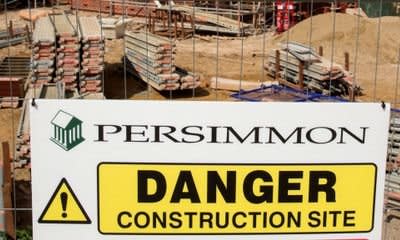Brexit fallout: Share slide persists for builders and banks

Banking and housebuilding stocks remained under pressure as businesses exposed to the UK economy continued to feel the heat from the ongoing political crisis over Brexit.
After taking a hammering in the wake of government resignations over the draft withdrawal deal, the sectors continued to suffer falls on Friday.
Among stocks on the FTSE 100 Index, Royal Bank of Scotland (LSE: RBS.L - news) was down another 3%, while peers Lloyds Banking Group and Barclays (LSE: BARC.L - news) dropped almost 2% and almost 1% respectively.
:: Brexit political turmoil - live updates
Construction also took a hit, with Persimmon (Frankfurt: 882058 - news) and Barratt Developments (Frankfurt: 859551 - news) falling another 2%.
Investors are also bracing themselves for further turmoil, amid reports that Prime Minister Theresa May is likely to face a confidence vote over her leadership.
:: How Tory MPs could force out May as leader
Meanwhile, the pound steadied after enduring its biggest one-day decline for more than two years. Sterling rose by almost a cent against the US dollar to just over $1.28.
Against the euro, the pound was little changed to just under €1.13 and was higher against most major currencies.
The FTSE rose 15.1 points to 7053.1 in morning trading but lost ground later in the day, closing at 7013.8, down 24.13 points (0.34%)
Michael Hewson, chief market analyst at CMC Markets (LSE: CMCX.L - news) , warned a leadership challenge for Mrs May was unlikely to end the Brexit chaos.
He said: "Any new leader will face the very same problems that the current incumbent is now facing, which means that for all the sound and fury that is currently buffeting currency markets, the ultimate calculus remains the same in that there is no majority in the House of Commons for a no-deal Brexit.
"It was fears around a possible election, a no-deal Brexit and a Corbyn government that saw UK banks and housebuilders fall sharply yesterday, though the rise in UK gilt prices suggests that the bond markets think this an unlikely scenario for now."

 Yahoo News
Yahoo News 